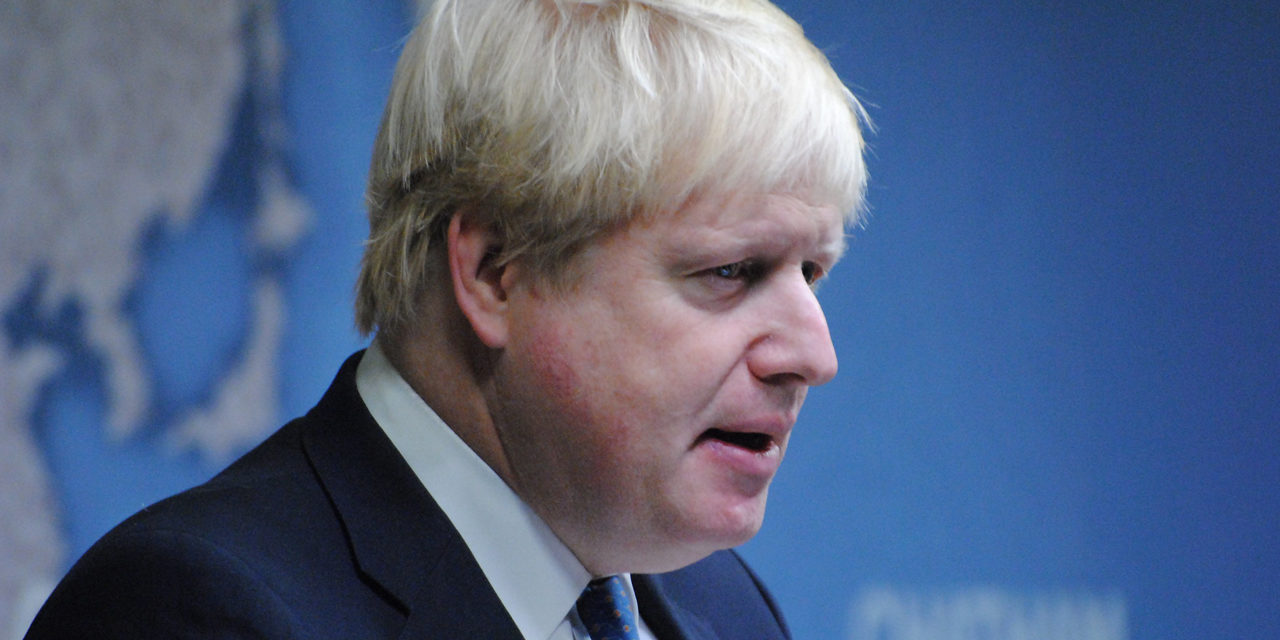Yesterday, British Prime Minister Boris Johnson was placed in an intensive care unit (ICU) as his coronavirus symptoms worsened. Currently, Dominic Raab, the Foreign Secretary, is “deputized” to act as necessary. Johnson is the first international leader to become infected with COVID-19 and it raises the question about what happens when a world leader is suddenly too sick to lead.
According to 10 Downing Street, the office of the Prime Minister of the United Kingdom, Johnson was initially admitted to the hospital on Sunday evening. He has now been moved to intensive care and has received oxygen, though he is not on a ventilator.
In an official statement, No. 10 said, “The prime minister has been under the care of doctors at St. Thomas’ Hospital, in London, after being admitted with persistent symptoms of coronavirus. Over the course of [Monday] afternoon, the condition of the prime minister has worsened, and, on the advice of his medical team, he has been moved to the intensive care unit at the hospital.”
The Queen, who is the head of state for the U.K. and Commonwealth, has been kept informed about his condition.
Per reporting from the BBC, the change and update from No. 10 Downing Street and the deputation of Foreign Secretary Raab is concerning. “That is a completely different message from what we have heard over the past 18 hours or so, where it was continually ‘the prime minister is in touch’ and ‘he is in charge’ – almost like everything is business as usual. But clearly being in intensive care changes everything.”
It brings up an interesting question, how does a country adjust when suddenly the nation’s leader becomes suddenly ill during an international pandemic?
This situation is something that world leaders have not had to deal with in a century, ever since the devastating Spanish Influenza killed millions between 1918-1919. In fact, during the Treaty of Versailles, after World War I in 1918, the President of the United States Woodrow Wilson came down with the flu. His condition was so severe that some thought he may have been poisoned, and he was largely absent from some of the discussions. At one point, he could hardly sit up in bed and started acting strangely (probably the result of fever induced hallucinations).
“Generally predictable in his actions, Wilson began blurting unexpected orders,” A. Scott Berg wrote in his biography of the nations’ 28th president. “Twice he created a scene over pieces of furniture that had suddenly disappeared,” though nothing had been moved. He also remained concerned about the possible infiltration of spies.
It’s possible that the end result of the Treaty of Versailles would’ve been different, and World War II may have even been avoided, had Wilson been more lucid and not capitulated on several things he previously said were nonnegotiable. Though the president fully recovered, he later suffered a stroke and for a period of time remained partially paralyzed. In the absence of her husband’s ability to lead and with no clear constitutional direction, Wilson’s wife Edith essentially ran the government from his bedside for the rest of his term.
Wilson’s stroke and subsequent complications is part of the reason why the 25th Amendment of the Constitution, which details what happens in the event a U.S. President becomes incapacitated or dies, was adopted.
So, with the threat of coronavirus hanging all around us, who would take over the presidency in the event that President Donald Trump became incapacitated beyond the ability to perform his duties? Of course, the first would be Vice President Mike Pence. Every vice president is said to be “a heartbeat away from the presidency.” In the event that Pence were also incapacitated, leadership would then pass to Speaker of the House Nancy Pelosi. It would then go to the President pro tempore of the Senate, Chuck Grassley. In the instance that all of these people are ill and unable to lead, it would then pass to the Secretary of State Mike Pompeo and then to Secretary of the Treasury Steven Mnuchin.
The British, except for the monarchy, don’t have such a clear-cut line of succession for the role of prime minister as the country has no written constitution. Thus, the decision to give temporary power to the Foreign Secretary is significant and demonstrates that clear threat and struggle that Johnson is having.
Prayerfully, Johnson will make a full recovery and President Trump, the vice president, the Speaker and Senate pro tem, and the Cabinet will stay safe and healthy. While there are protocols in place if the worst should happen, we need our government operating at full capacity during this crisis without a rushed transition due to illness.






